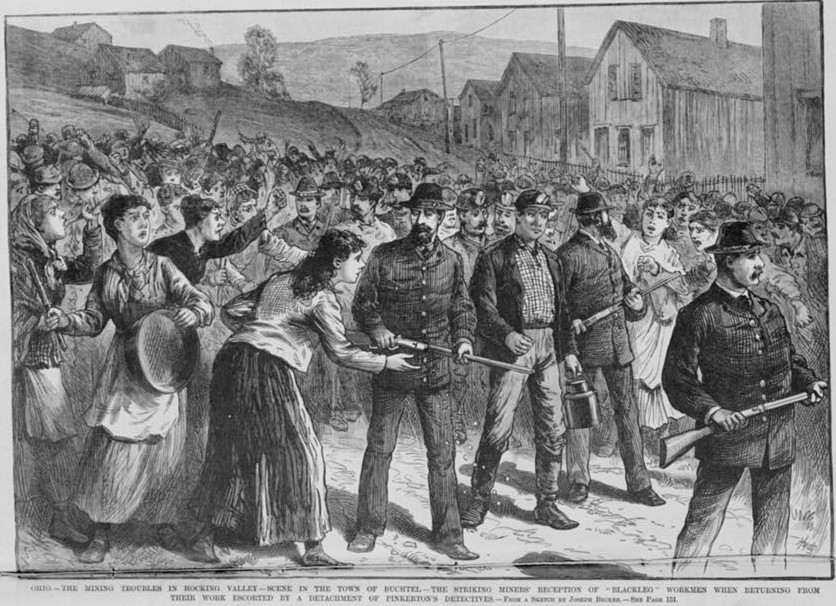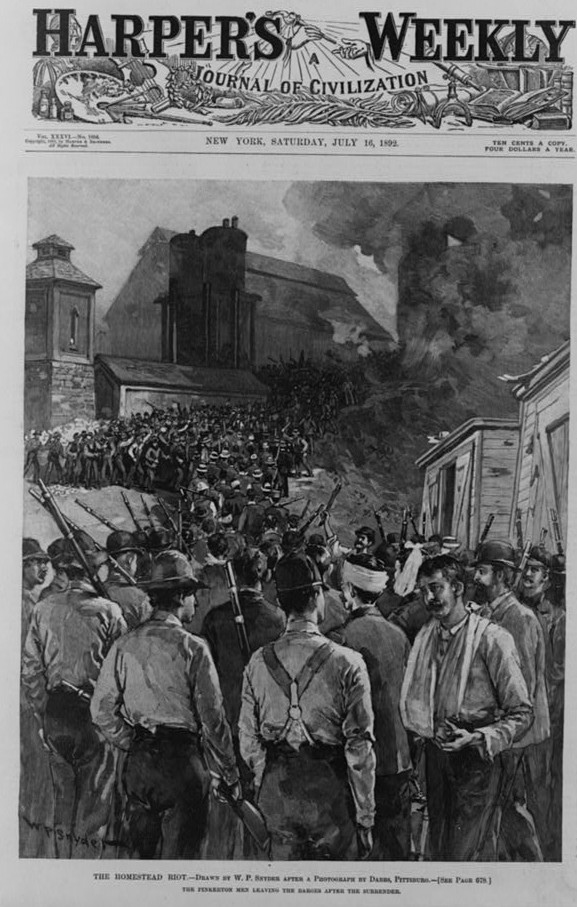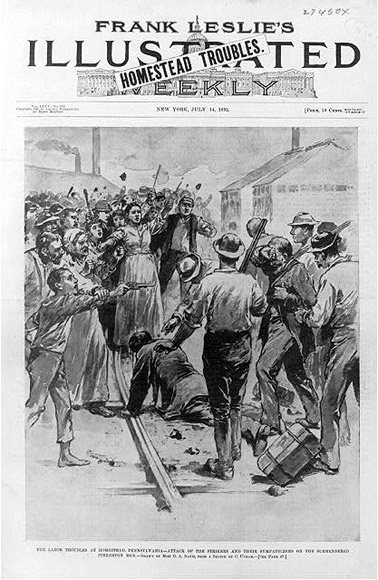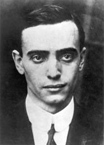"...if you have seen any good pictures of him, you will understand what I mean when I say that he looks like a pervert. It is a slightly significant fact, I think, that I sized him up as one the first time I saw him, before a whisper of the perversion testimony came out... Other have told me they were impressed the same way..."
From Appendix D, A GEORGIAN'S VIEW, from Dinnerstein, THE LEO FRANK CASE, pp. 172-177. The same person, who attended the trial, goes to great lengths to deny that anti-Semitism had anything to do with it. He does not describe how he became an expert on "pervert-spotting" in 1913 Atlanta, nor does he list the characteristics by which "perverts" may be identified.
Other such quotes are not hard to find, for example:
"'Lascivious Sodomite', Tom Watson was to call him, and many of his readers wallowed in their sexual fantasies. For the next two years, that story took precedence over all other the charges against Frank. The labels 'Yankee', 'exploiter', 'Capitalist', 'Jew', were joined by 'pervert'" (Golden, p. 84).
"'You could tell that Frank is a lascivious pervert, guilty of the crime that caused the Almighty to blast the Cities of the Plain, by a study of the accompanying picture: look at those bulging, satyr eyes, the protruding sensual lips; and also the animal jaw.'" (Tom Watson, quoted in Golden, p. 219).
"What really convicted Frank was the suggestion that he was a Jewish capitalist engaged in abnormal sexual practices" (Justice Irving Lehman, quoted in Golden, p. 243), etc. etc.
Whoever committed the murder must have had blood on his clothing and scratches or bruises on his person. Frank voluntarily disrobed in the station house and allowed the police to examine him, showing he had no scratches or bruises. He then took them to his home and allowed them to examine all his dirty linen, proving that he possessed no blood-stained articles of clothing of any kind (Golden, pp. 45-6, Oney, p. 51). This was immediately after the murder, when his "nervousness" at being abruptly visited by the police at 7:30 A.M. to identify the body of the victim is still held against him. He was "nervous" because the actions of the police were deliberately intimidating. Why not ask the girl's parents to identify the body (Golden, pp. 36-7)? He was examined by six physicians during the trial. His sexual organs were found to be perfectly normal in every way (Oney, pp. 276, 342). Why would he tell Conley "I ain't built like other men" (Golden, p. 236)?
Another reason for Frank's conviction was his association with the Pinkertons, a "private detective agency" (in reality, a nationwide supplier of railroad police, scabs and strike-breakers), responsible for the deaths of 200 strikers at Homestead, Pennsylvania, during in the longest strike in American history, only 21 years before. Since their main activity consisted of acting as industrial "rent-a-goons", they hired a great many sub-standard people and called them "detectives". Few working men, and no trade unionist, would pass up a chance to hang anyone associated with them anywhere in the country. Two of them were nearly lynched in Marietta, after which they eventually withdrew from the case, but not before doing Frank irreparable harm. This is downplayed by the news media, which is, of course, owned by Jews, and is only interested in "anti-Semitism", real, imagined or exaggerated.



There are many important lessons to be learned from the Frank case, none of which have anything to do with race or religion: the importance of first impressions; the importance of understanding the people around you; of knowing when to speak and when not to speak; of never remaining on the defensive in a dispute (always counter-attack); and, above all: when people tell you what you want to hear, it is not necessarily the truth; it's what you want to hear -- that's all.
My personal belief is that Frank did not receive a fair trial, for many reasons, but not just because of "anti-Semitism" or a lynch-mob atmosphere. I believe that Frank was entitled to a new trial the first time he was accused of a crime not mentioned in the indictment (the charge of "perversion" was sprung upon the court, during trial, by Conley, who had never even mentioned it before), as well as for gross prosecutorial misconduct during cross-examination (asking questions for which there was no "good faith basis", simply to prejudice the court against the defendant, i.e., Frank was accused of murdering a young girl, so every time the defense witness was a young boy, he was accused of being a "homosexual" (!!), even though there was no evidence of this whatsoever). My personal belief is that Frank was convicted because of his decision to "place his character in evidence", more than for any other other reason: without this decision, none of those filthy stories about Franks' personal life would have been admissible, true or false, and legally would not have been considered proof of anything. Steve Oney calls this decision "almost inconceivable" (p. 90), and I am astonished that his lawyers ever dreamed of permitting him to do it.
"Placing one's character in evidence" is such a foolish thing to do that it nearly always occurs by accident; for example, a rape victim says "I don't do that kind of thing", or "I'm not that sort of girl", or some other similar remark, and, presto! She has "placed her character in evidence"; whereupon the defendant produces five friends who swear, perjuriously or truthfully, that the victim is the biggest whore since La Madre de la Gran Puta, and the defendant gets acquitted, even if he's obviously guilty! I think any lawyer will tell you: if you ever get accused of a crime (or even if you are the victim of a crime), you shut up about "what kind of person you are", and stick to the evidence in this one case.
Jews have a tendency to evade factual argument, and in this case it backfired very badly. At any rate, the case is far too complex to sum up under the simplistic headings of "Anti-Semitism" or even "Southern Justice".
I have never read of a criminal case with so much totally worthless "evidence" involved on both sides, i.e., crackpot witnesses, publicity seekers, hoaxers, police and detective manipulation of evidence and incompetence, rumours, hearsay, perjury, newspaper hysteria, etc. In this way as well, Frank was unlucky. It is interesting to note that Frank himself did not claim that he was the victim of "anti-Semitism", for which I respect him; this claim was made by his lawyers and supporters. Frank simply said he knew nothing about the murder.
Further indication of prosecution coaching of the witnesses is suggested by Golden on pp. 225-26: Frank was described as "rubbing his hands" eleven times during the trial, three times by Conley. Yet Frank never rubbed his hands once in the 30-day trial. Golden suggests that, in 1913, the kaftan-robed, bearded Jew, "rubbing his hands", was a stock figure of vaudeville comedy; perhaps the witnesses were told: "Don't forget, Jews are always rubbing their hands".
Oddly, the only openly "anti-Semitic" juror in the Frank case -- whose presence on the jury was later objected to by the defense -- was also the only juror to vote "Not guilty" on the first ballot! Maybe "anti-Semites" have more sense than most people think.
There can be no doubt that Frank was a very strange person: the same man who was so "nervous" by reputation and so "nervous" the morning he was awakened by the police, never once lost his composure or his dignity during the 26-month period he spent in prison, not even when awakened by a lynch mob and taken to his death during a 10-hour car ride on the back roads of Georgia. The "nervous" man who knew he was going to die, and die horribly -- hanged without a drop, with a barely-healed 7 and-a-half-inch gash in his neck -- never wavered, never hesitated, never showed the slightest signs of panic, nervousness, or even surprise. Interestingly, he was permitted by his lynchers to write a note to his wife in German which then disappeared, i.e., was obviously destroyed (Oney, p. 565). Yet even his dignity and composure are cited against him: it is said that he was "cold", "unfeeling", "heartless". I wonder how many of us could die like that.
People who knew him well, both Jews and non-Jews alike, liked and respected him. Many people who hardly knew him at all disliked and distrusted him instinctively. He appears to have been a prototype "geek" or "nerd", a technician, totally unable to relate to people, except those he knew well. Yet his relations with his wife, family and friends show he was not a man without feeling at all. He was never once caught in a lie; yet Conley lied constantly, in great detail, replacing old lies with new ones, which were equally detailed.
The irony of it all is that the "pervert" was Conley, as shown by the Annie Maude Carter letters.
The Frank case is like a Greek tragedy in which vast cosmic forces conspire to destroy some hapless individual because of a "fatal flaw". In Frank, the flaw was his inability to relate to people, and to convey an unambiguous impression of his true nature. Many Jews have this problem; there is something reptilian about them which repels people; but with Frank, I don't think his Jewishness was the real issue.
These forces are perhaps best summed up in the following quotes:
"If the Jews had been content to regard Frank as a man suspected of murder, entitled to a fair trial and nothing more, instead of a Jew on the threshold of martydom, hounded by Christians thirsting for his blood, there would have been little or no anti-Semitic feeling in Atlanta" -- Herbert Asbury, Atlanta newspaper man, writing in 1925, quoted in Dinnerstein, p. 157.
"The efforts of Northerners and Jews had helped arouse national opinion on Frank's behalf and had won for him additional hearings. But it also weakened his case among [those] Southerners who tended to see ' 'IN EVERY NOTION COMING OUT OF THE NORTH A MENACE AND AN ABOMINATION; TO VIEW EVERY IDEA ORIGINATED BY THE YANKEE OR BEARING THE STAMP OF HIS ACCEPTANCE AS CONTAINING HIDDEN WITHIN ITSELF THE OLD IMPLACABLE WILL TO COERCE AND DESTROY...'" (Dinnerstein, p. 134; the quote is from Wilbur J. Cash, THE MIND OF THE SOUTH, p. 140).
C.P.
13 May 2006

"There's no art to find the mind's construction in the face."
- Shakespeare
"If I'm going to die, I'm not afraid. Nothing stands between me and God."
- Leo Frank, in prison, after his throat was cut with a butcher knife, July 17, 1915



